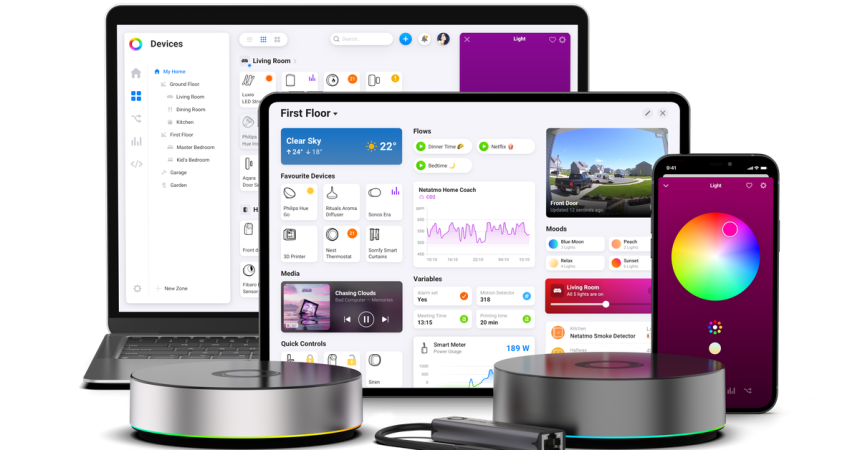Homey, a smart home company recently acquired by LG, has launched a suite of new features designed to empower users to monitor and manage their home energy consumption. This two-pronged approach involves a software update to the Homey app and the introduction of a new hardware device, the Homey Energy Dongle. Together, these offerings represent a significant step forward in Homey’s evolution towards a comprehensive home energy management system.
The updated Homey app now features a dedicated energy management tab, currently available in public beta for Homey Pro and Homey Cloud customers. This tab provides a visual representation of a home’s energy usage through interactive charts, displaying real-time and historical data for electricity, gas, and water consumption, provided the appropriate hardware is connected. It also tracks solar energy generation, monitors EV charging, and illustrates the flow of energy to and from the grid. Furthermore, the app identifies the most energy-intensive devices in the home, offering valuable insights for optimizing energy usage. Users can input their energy prices to receive estimated costs, and Homey plans to integrate support for dynamic pricing next year, enabling automated energy-saving actions based on fluctuating energy costs.
Complementing the app update is the Homey Energy Dongle, a device designed to connect directly to European smart meters using the P1 standard. This dongle provides real-time electricity and gas usage data to the Homey system, enriching the information available in the energy management tab. The dongle is currently available for pre-order in select European countries with shipping expected in March 2025. This combined software and hardware approach allows Homey users to gain a detailed understanding of their energy consumption patterns and identify opportunities for improvement.
Homey’s strength lies in its versatility as a smart home platform. The Homey Pro and Homey Bridge hubs act as central control points, connecting and managing a wide array of smart home devices through various communication protocols, including Zigbee, Z-Wave, Bluetooth, Wi-Fi, Thread, IR, as well as cloud-based connections and integration with third-party bridges like Philips Hue. This broad compatibility extends to the energy management features, which support devices connected via various protocols, including the emerging Matter standard. This ensures that a wide range of smart devices, regardless of their communication method, can contribute data to the energy management system, creating a holistic view of energy consumption within the home.
The future of Homey’s energy management system looks promising, with planned features including dynamic pricing support and integration with LG’s ThinQ platform. The dynamic pricing feature will enable users to automate energy-intensive tasks, such as EV charging, to take advantage of lower electricity prices. While LG’s acquisition of Homey signals deeper integration with LG appliances, Homey continues to operate independently and maintains its commitment to open platform compatibility. This ensures ongoing support for a broad range of devices and provides users with flexibility in building their smart home ecosystems. The integration with LG appliances, while still on the roadmap, promises further enhancements to the energy management capabilities.
The trend toward integrated home energy management is gaining momentum, driven by increasing energy costs and a growing awareness of environmental impact. Homey’s latest offerings position the company as a strong contender in this evolving market. Several other companies are also making strides in this area, including Samsung’s SmartThings Energy platform, which has received Energy STAR certification, and Home Assistant, which offers various energy management tools. Apple’s Home app has also incorporated energy tracking features, although with limited availability. The Matter smart home standard’s recent inclusion of energy management features further solidifies the importance of this functionality in the smart home landscape.
Homey’s comprehensive approach, combining hardware and software, positions it well to cater to the growing demand for efficient home energy management. The ability to track, monitor, and ultimately control energy usage from a centralized platform empowers users to reduce their energy consumption and costs. As the smart home evolves, energy management is becoming a key driver for adoption, and Homey’s efforts in this space provide a compelling option for consumers seeking a smart and sustainable home. The future iterations of Homey’s platform, incorporating dynamic pricing and deeper integration with LG appliances, promise further advancements in this crucial area of the smart home experience.



